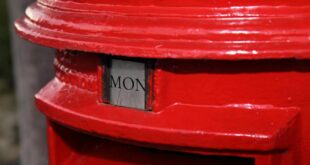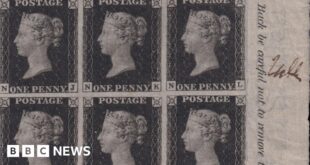The earliest, and weirdest, start to Christmas is upon us. John Lewis began stocking its online shelves with festive goods in August, and on Friday they go on sale in stores, amid predictions (or more likely retailers’ prayers) that we will be shopping earlier this year to avoid crowds. But with so much uncertainty, how do you plan for Christmas under the cloud of coronavirus without the prospect of ending up out of pocket if it all goes wrong?
Christmas food
Marks & Spencer and Sainsbury’s say customers are searching for festive food more than they usually do at this time of year. M&S, in its Christmas trends 2020 report, says this will be a more nostalgic, homely Christmas, with families baking more – sales of its baking goods remain 90% higher than last year. We will be eating more pies and tarts (demand is up by more than 100% in the past six months) as well as custard and hot puddings (up 20%).
But pity the big turkey. Poultry farms are worried the birds will be too large for gatherings probably limited to six at the dinner table. One told the BBC it might have to slaughter birds up to 10 days earlier to limit their size.
As one of the jokes currently circulating via WhatsApp says: “I think the only way to do Christmas this year is to kill the turkey and have 30 people over for the funeral.”
Buying presents
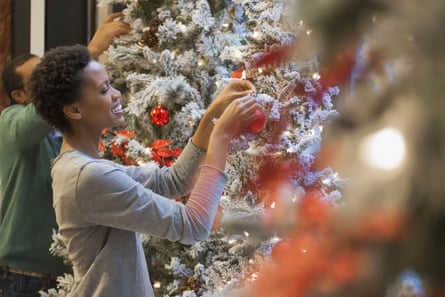
Will you have enough money to buy gifts? Unemployment could jump even higher before the year ends, and households will be holding on to their savings, fearful for their jobs. High street stores are expecting their toughest festive season for years, possibly decades. Springboard, which measures the number of shoppers visiting stores, predicts footfall in December will decline by 20% compared with last year.
There has been talk in the trade of stock shortages because Asian factories were forced to close for months – but there are also fears that holding lots of stock could be disastrous if there are renewed lockdowns. Buying presents early may be the way to ensure you get what you want.
To curb Christmas crowds, John Lewis has begun offering a drive-through click-and-collect service at some of its stores and 57 Waitrose branches. It is also testing a queuing app that may prevent customers from having to queue in the rain and cold.
If you buy goods early, say in October, but they have to be returned after Christmas, will you be refused? M&S says it typically offers a 35-day returns policy during the festive season but this is under review.
Train travel
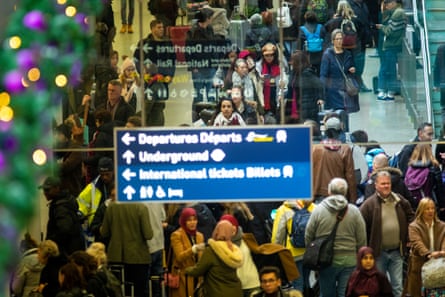
The weekend before Christmas is usually a huge travel period, particularly as younger adults cross the country to return to family homes. The cheapest tickets, called Advance, are typically issued for sale about 12 weeks before and usually well worth it. For example, we checked prices for York to London return: it was £93.50 if travelling the next day, but £37.80 for an Advance ticket travelling in December.
This year things are different. Rail operators have been through four waves of timetable changes in 2020 amid the pandemic and some have not been releasing Advance tickets 12 weeks ahead.
What’s more, travellers do not have an automatic right to a full refund when buying an Advance ticket. If there is a local lockdown either where you are travelling from or to, will you be able to cancel?
The Rail Delivery Group says buyers are made aware that Advance tickets are non-refundable at the point of booking, although it is possible to change the date and time of the ticket for a fee.
Train operators say they paid £421m in refunds in the first four months of the pandemic, more than the total value of refunds in all of 2019. They would not confirm whether refunds would be available under renewed lockdowns, but passengers would expect fair treatment from what was now, in effect, a renationalised service.
Planes
On the final Friday before Christmas last year, Heathrow was handling about 200 passengers a minute. This year it will be a fraction of that number, but if you are one of the few travelling, airlines that offer coronavirus “peace of mind” deals may be your best bet.
For example, on the London–Dublin route – Europe’s busiest international air corridor – Aer Lingus is selling seats for Christmas travel at about £33 each way, compared with prices starting at £20 on Ryanair. But Aer Lingus offers more flexibility on rebooking without fees. When buying flights and hotels this Christmas, it is certainly worth paying a small amount extra for flexibility or extra cancellation rights.
The return of the Christmas card?
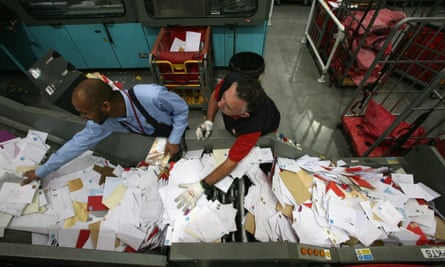
M&S predicts a resurgence in posting cards this year as people want to give handwritten thanks as well as send wishes to loved ones they cannot meet in person. The last day to catch the second-class Christmas post is 18 December, says Royal Mail.
The John Lewis Christmas TV ad
Should we be preparing ourselves now for a coronavirus-inspired schmaltzfest? One journalist, Jonathan Dean, sparked a Twitter mini-frenzy this week in a posting “dreading” what would probably be “a cover of Fix You by a children’s choir singing to all their nans via Zoom”. Others chimed in: “An empty, depressing street in winter” guessed @fatherbananas. “A nurse named Eileen leaves her house, walking to the bus stop in her mask. A teenage girl picks up her ukulele and begins to strum a slow, acoustic ‘Come on Eileen’ … we see Eileen at work, giving out presents… families gather on the doorsteps to applaud…”
John Lewis, of course, remains silent about the content of its ad. But we know one thing: despite reports of a “bidding war” between retailers for the fundraising hero Capt Tom Moore to be the face of their Christmas ads, he is unlikely to be starring in the John Lewis advert.
